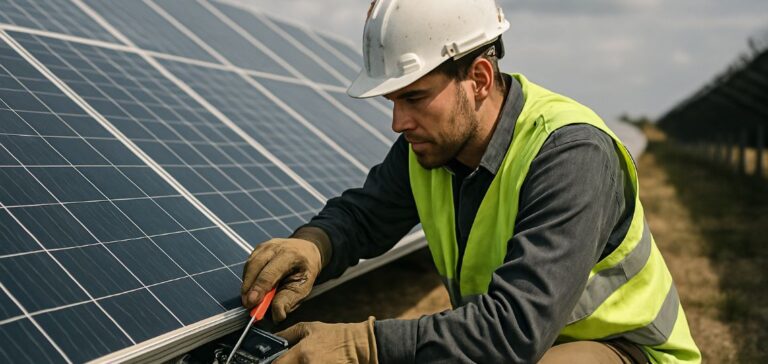The Commission de régulation de l’énergie (CRE) published on April 10 its first observatory on electricity purchase agreements, known as Power Purchase Agreements (PPAs), concerning renewable production assets located in mainland France. This initiative, based on data collected in 2023 from 47 stakeholders, provides a detailed overview of the characteristics of these contracts signed between producers and buyers, outside any public support framework.
The analysed annual volume amounts to 3.3 terawatt hours (TWh) for a total installed capacity of 2.2 gigawatts (GW), including 1.9 GW from photovoltaic energy and 0.35 GW from onshore wind. Of the 162 installations considered, 141 are photovoltaic parks, 18 are wind farms, and 3 are cogeneration or waste heat recovery units. This volume remains modest compared to capacities installed through public tenders between 2019 and 2023, estimated at 7 GW for photovoltaics and 5 GW for wind power.
A boost driven by wholesale price tensions
The momentum behind PPA signings increased significantly in 2022 and 2023, driven by volatile energy prices and the broader energy crisis. This trend slowed in 2024 as wholesale market prices declined. Buyers are mainly large companies with strong financial guarantees. For these actors, PPAs cover only a fraction of their total electricity needs but provide price certainty.
The average contract duration in France reaches 19 years, a level higher than the European average of 13 years, according to a 2022 study by consultancy E-Cube. This extended duration, similar to that of State-supported contracts, reflects a rare long-term commitment in unsubsidised markets.
Expanding the regulatory scope and strengthening mechanisms
The CRE has identified several levers to support the growth of these contracts. It recommends extending counterparty risk guarantee schemes to enable more buyers, especially mid-sized companies, to access PPAs. It also suggests assessing the integration of PPAs into global supply portfolios and their potential role in meeting prudential obligations.
Finally, to improve transparency and monitoring in this emerging market, the CRE proposes introducing a mandatory declaration of PPAs within the French Energy Code. This measure would facilitate regular updates to the observatory and the adjustment of recommendations based on market developments.






















